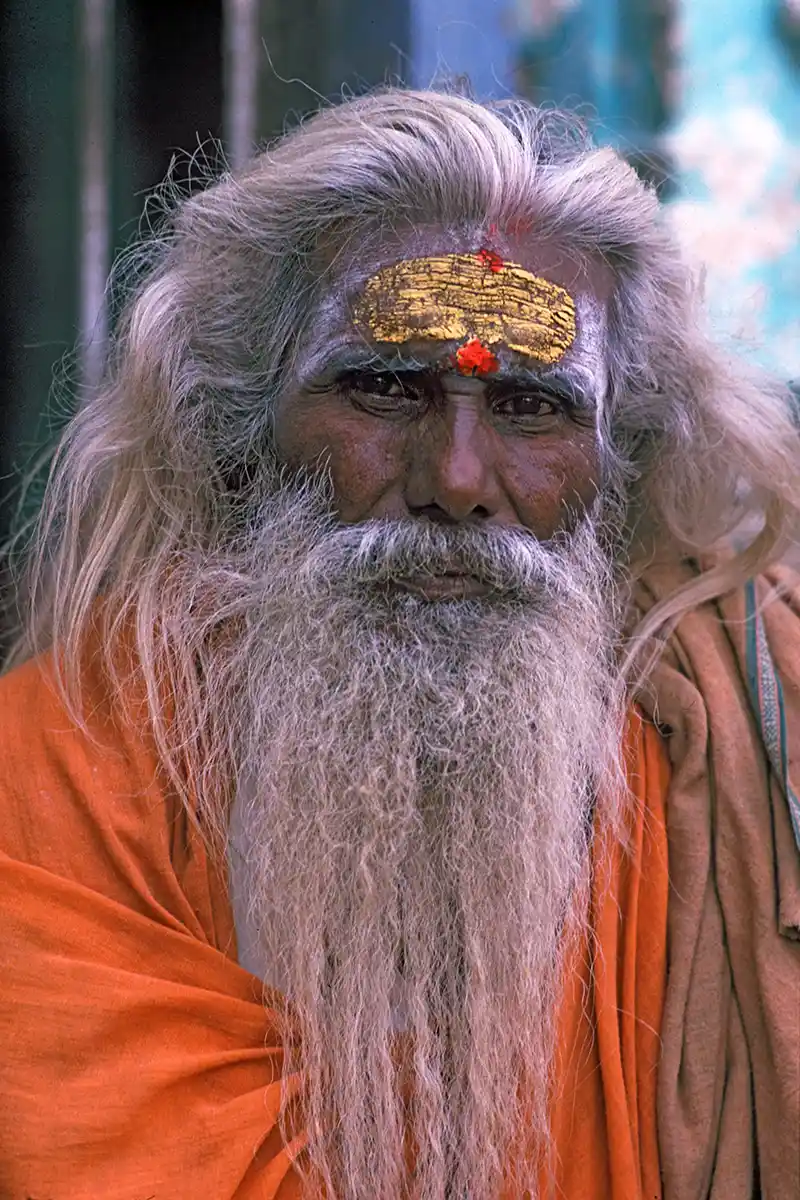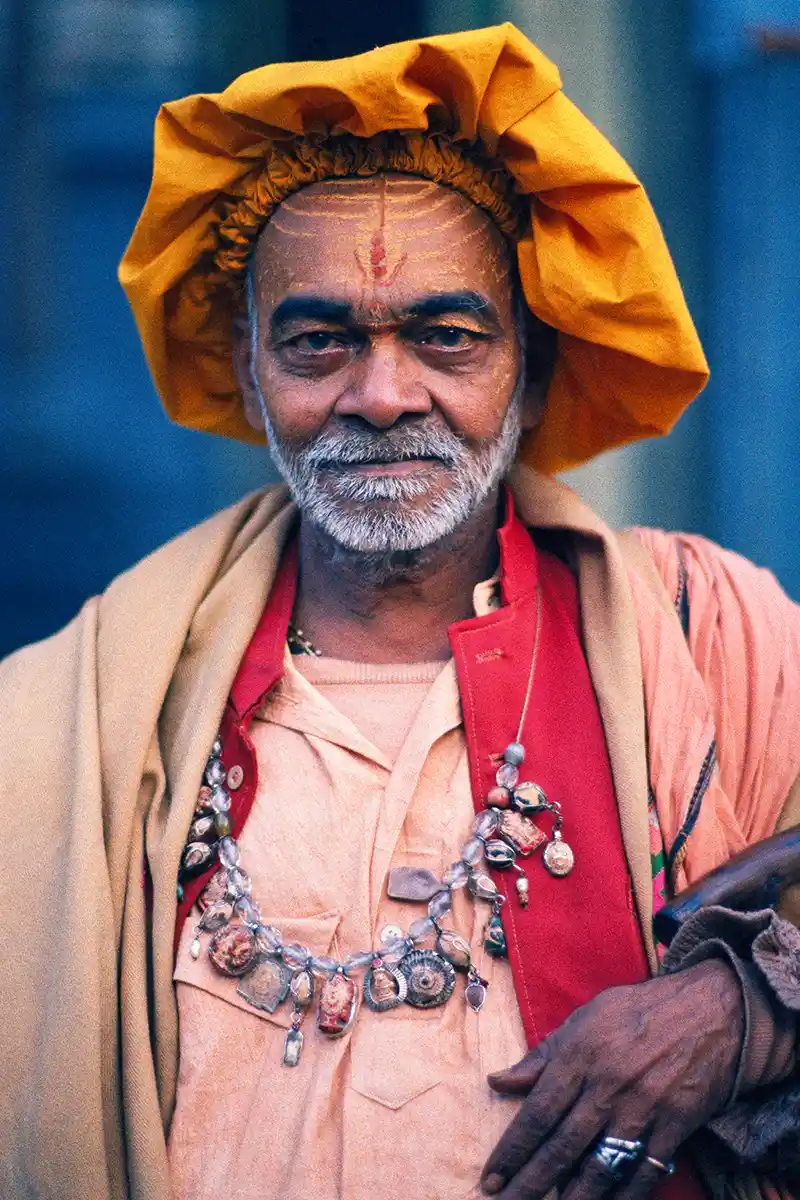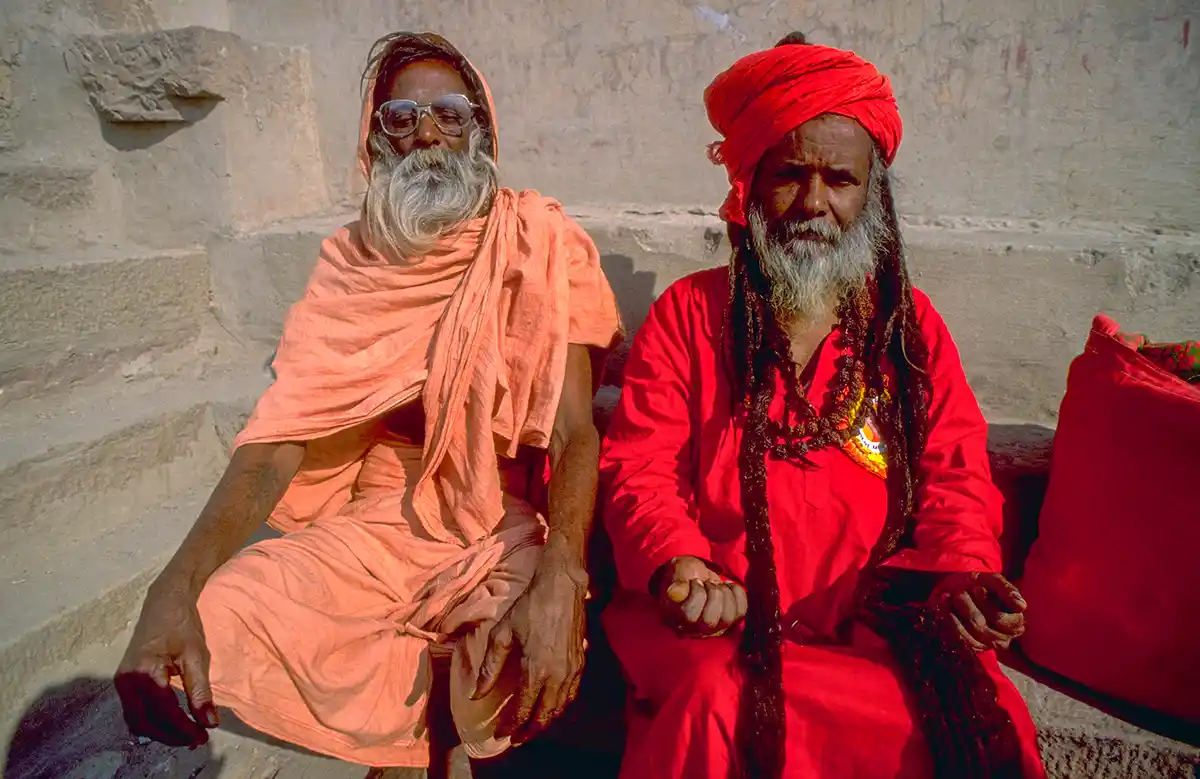Sadhus of India
Each year, millions of men and women go on pilgrimage to India. Most take a short break from their daily lives and return home upon completing their pilgrimage. Others spend years visiting sacred sites all across the country. Notable among these long-time pilgrims are the sadhus. The Sanskrit term sadhu (pronounced sah-doo) refers to individuals who have chosen to live apart from or on the edges of society to focus on their own spiritual practice. Members of different semi-monastic orders, sadhus, are renunciates who have left behind all material and sexual attachments and live in caves, forests, and temples all over India and Nepal. Some sadhus are older men who have lived as householders and raised families before becoming sadhus. In contrast, others are young men who have become renunciates, often in their late teens or early 20s (there are also female sadhus called Sadhvis). There are an estimated 4 or 5 million sadhus in India today, and they are widely revered for their intense spiritual practices and holiness.
For additional information:

Martin Gray is a cultural anthropologist, writer and photographer specializing in the study of pilgrimage traditions and sacred sites around the world. During a 40 year period he has visited more than 2000 pilgrimage places in 160 countries. The World Pilgrimage Guide at sacredsites.com is the most comprehensive source of information on this subject.



